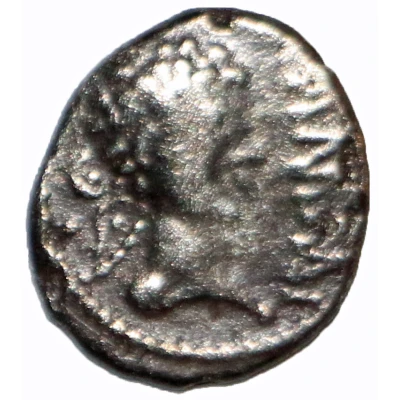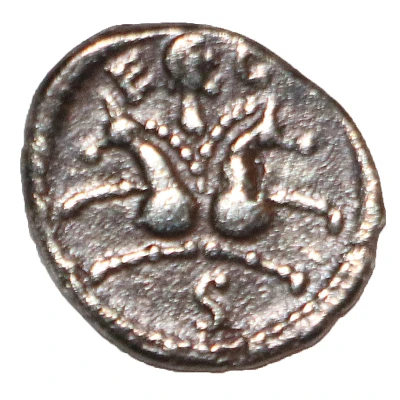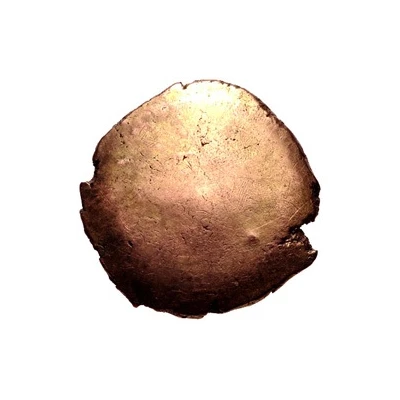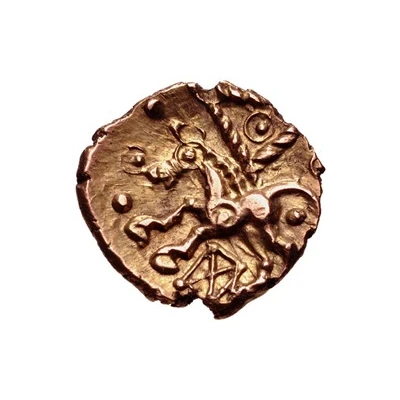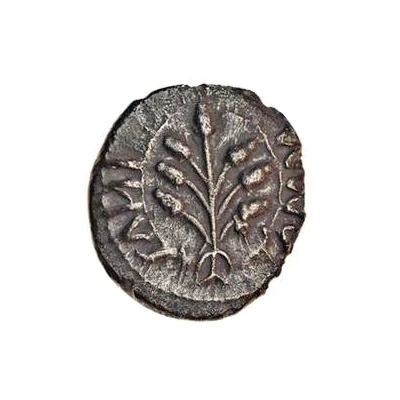
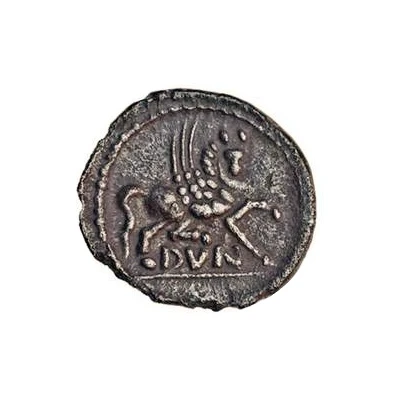

© Spink and Son
Silver Unit "Cantian N" - Amminus
| Silver | 0.97 g | 12 mm |
| Issuer | Cantii tribe (Celtic Britain) |
|---|---|
| King | Adminius (circa AD 15-40) |
| Type | Standard circulation coin |
| Years | 35-38 |
| Value | Silver Unit (1⁄50) |
| Currency | Stater |
| Composition | Silver |
| Weight | 0.97 g |
| Diameter | 12 mm |
| Shape | Round (irregular) |
| Technique | Hammered |
| Demonetized | Yes |
| Updated | 2024-10-09 |
| Numista | N#120546 |
|---|---|
| Rarity index | 97% |
Reverse
Winged horse (Pegasus) right, legend and exergue line below.
Script: Latin
Lettering: DVN
Comment
'Plant' type. BMC 2522-23;Amminus issued a coinage stylistically distinct from other Kentish types and with strong affinities to those of Cunobelin. Indeed it has been suggested that he is the Adminius recorded by Suetonius as a son of Cunobelin. The enigmatic legend DVN or DVNO may be an unknown mint site.
Interesting fact
One interesting fact about the Cantian N - Amminus coin is that it features a unique design that reflects the cultural and religious beliefs of the Cantii tribe, a Celtic tribe that inhabited parts of Britain during the Iron Age and Roman periods. The coin's obverse (front) side features a stylized horse, which was a symbol of strength, power, and fertility in Celtic culture. The reverse (back) side features a stylized image of a warrior, which may represent a local chieftain or warrior-king. The coin's design and symbolism provide a fascinating glimpse into the culture and beliefs of ancient Celtic societies.
